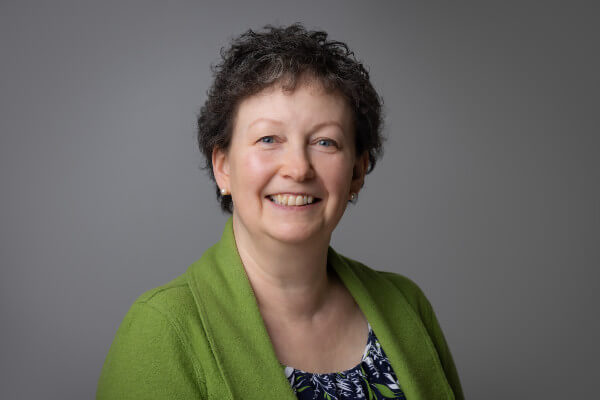Joint Junior Doctors and Consultant Strike Action

NHS staff across Hertfordshire are appealing for the public’s support as junior doctors and consultants take joint industrial action.
Consultant doctors will be taking 48 hours of continuous industrial action from 7am on Tuesday 19 September until 7am on Thursday 21 September.
Junior doctors will be taking 72 hours of continuous industrial action from 7am on Wednesday 20 September until 7am on Saturday 23 September.
For the first time ever both consultants and junior doctors will be taking strike action on the same day (20 September) and this will have a greater impact on services which will be focused on protecting services for life-threatening emergencies.
The public are reminded that they should only attend accident and emergency departments at Princess Alexandra Hospital in Harlow, Lister Hospital in Stevenage and Watford General Hospital if they need treatment for a very serious illness or injury.
Dr Jane Halpin, Chief Executive of Hertfordshire and West Essex Integrated Care Board (ICB) said: ‘This strike action with both consultant doctors and junior doctors presents many challenges to patients, our hospitals, and some of our GP practices too. With large numbers of doctors expected to be absent, hospitals will not be able to run as normal and services will be working under immense pressure.
‘Even with the careful planning that is taking place, both routine and emergency care are likely to be significantly affected. In order to prioritise life-saving emergency treatment for people who need it, hospitals will postpone some non-urgent operations, treatments and routine appointments. Where this is the case, patients will be contacted directly. This is really unfortunate for those whose treatment is delayed, but with the majority of doctors not working, remaining staff must cover the essential care patients need.
‘A&E is always for serious injuries and life-threatening emergencies only, so in a genuine medical emergency always call 999. There are many sources of advice about when to call 999, including on the NHS website. If you come to A&E with a minor condition or illness during the strike, you are likely to face a very long wait. If you call 999 for an ambulance when you don’t need one, you could endanger the life of another person in desperate need of emergency care. NHS 111 is there 24 hours a day if you or a family member are unwell and need urgent medical help or advice on where to go. Please use 111 online or by phone if you cannot manage symptoms yourself at home.
‘I would like to thank everyone for their understanding and support at this challenging time.’
Tips for Residents
- If you need urgent health help, use NHS 111 online (www.111.nhs.uk) or call 111. Your symptoms will be assessed, and you will be provided with healthcare advice or an appointment to see a doctor or nurse if this is needed. NHS 111 can also send an ambulance and can book an appointment for you in some services like urgent treatment centres.
- If you are in a mental health crisis, call NHS 111 and get straight through to mental health help by selecting option 2.
- GP surgeries are less directly affected by junior doctor industrial action. However, they are expected to be busier than usual as a result – so only call if it is really essential and consider filling out an online consultation on your practice website if you can wait.
- Feeling a bit under the weather? The NHS website has lots of advice to help you to look after yourself when you have minor symptoms. There is also information about what is a serious medical emergency: When to call 999 – NHS (www.nhs.uk)
- Pick up a few medicines while you’re shopping so that you can look after very minor illnesses or injuries yourself. You can buy basic essentials like paracetamol, ibuprofen, plasters, antiseptic cream, allergy medicine and indigestion remedies from pharmacies and supermarkets for less than the cost of a prescription. Remember, cheaper non-branded versions of medicines work just as well as branded products.
- Pharmacies are experts in medicines and treatment for minor conditions. You can find a list of pharmacies open out of hours by visiting www.nhs.uk and using the ‘Find a Pharmacy’ tool.
- Accident and Emergency (A&E) departments at hospitals only have the capacity to treat people who have serious or life-threatening conditions. If you use emergency services with a minor issue you are risking the lives of others and may not get the treatment for your symptoms as quickly as you will elsewhere.
- Do not visit anyone in a hospital or care home if you have recently had diarrhoea or vomiting. Stomach bugs are easily spread, make already ill people very seriously unwell, and can lead to whole hospital wards being closed. Please wait 48 hours after your last bout of sickness or diarrhoea before visiting anyone who is vulnerable.
Information on these services and self-help advice can be found at: hertsandwestessexics.org.uk/help-us-help.
You can also get information on local health services by following local NHS organisations on social media:
Hertfordshire and West Essex ICB @HWEICB
West Hertfordshire Teaching Hospitals NHS Trust @westhertsnhs
East and North Hertfordshire NHS Trust @enherts
Hertfordshire Community NHS Trust @hctnhs
Hertfordshire Partnership University NHS Foundation Trust @hpft_nhs
HUC (the organisation which runs NHS 111) @HUCHealthcare
